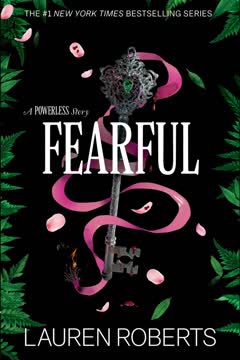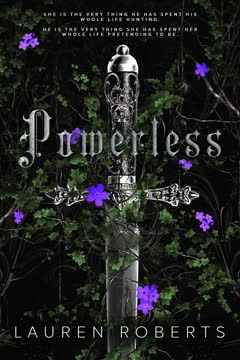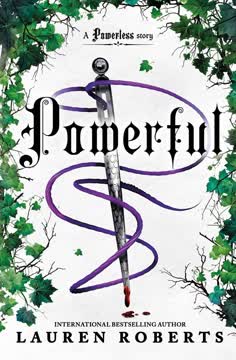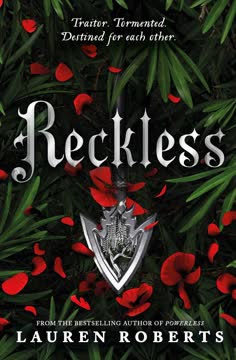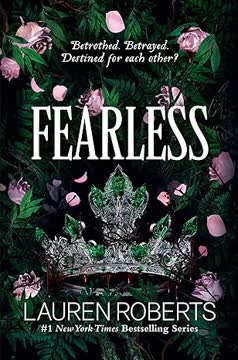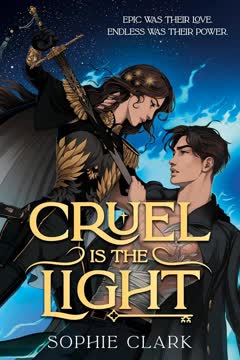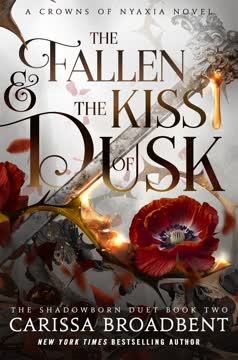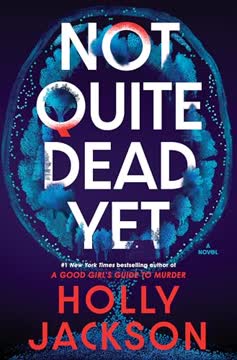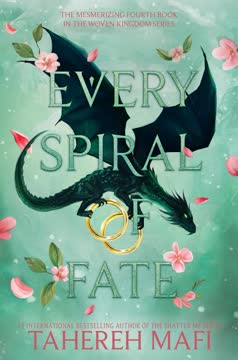Plot Summary
Death's Reluctant Return
Mara, the personification of Death, is drawn from her realm, the Mors, by the fraying lifeline of a young king, Kitt Azer. She is both weary and curious, haunted by the memory of a face she once knew. Mara's existence is a cycle of collecting souls, but Kitt's impending demise feels different—personal, intimate, and strangely compelling. As she navigates the decaying world of the dead and the mundane world of the living, Mara is both observer and participant, her detachment challenged by the vibrant, flawed lives she encounters. Her return to Ilya is not just a duty, but a confrontation with her own past and the possibility of change, setting the stage for a collision between fate and free will.
The Plague's Gamble
King Kitt Azer, desperate to save his kingdom and prove himself greater than his father, swallows a perfected dose of the Plague—a mysterious force that once granted powers to the Elites but also left a legacy of suffering. His reckless act is both a bid for greatness and a rebellion against the expectations and failures of his lineage. The Plague's effects are unpredictable, and Kitt's gamble is as much about personal validation as it is about Ilya's future. As he endures the scrutiny of Healers and Scholars, Kitt's motivations are revealed: a mix of selflessness, pride, and a longing to escape the shadow of his father's mediocrity. The Plague becomes a crucible, testing not only his body but the very fabric of his soul.
Tangled Fates in Ilya
Mara's return to Ilya brings her into contact with a cast of characters whose lives are tightly interwoven. Blair, a Tele with a sharp tongue and a legacy of pain, and Lenny, a Hyper with a heart too soft for his world, are forced together by royal decree. Their reluctant partnership is fraught with tension, humor, and the slow revelation of vulnerability beneath their facades. Meanwhile, Mara's interactions with Kitt grow increasingly charged, as both are drawn to each other by forces they barely understand. The kingdom itself is a tapestry of secrets, ambitions, and resentments, with every character struggling to define themselves against the roles imposed by power, family, and fate.
Bonds of Bickering Souls
Forced into close quarters, Blair and Lenny's antagonism gives way to a grudging respect and, eventually, a fragile trust. Their banter masks deeper wounds—Blair's struggle with her mother's expectations and her own guilt, Lenny's yearning for recognition and belonging. Mara, ever the observer, is fascinated by their dynamic, seeing in them a reflection of her own lost humanity. As they plot Blair's escape from Ilya and the shadow of her family, their souls begin to intertwine, not as lovers or enemies, but as something uniquely their own. Their journey is one of self-discovery, resilience, and the possibility of choosing one's own fate.
Secrets, Power, and Legacy
Kitt's investigation into his family's past uncovers devastating secrets: the Plague was no accident, and the line between Elite and Ordinary is a manufactured one. The revelation that his mother's love was not reserved for his father, and that his own legitimacy is in question, shakes Kitt's sense of self. Mara, too, is forced to confront the origins of her own power and the cost of immortality. The legacy of the Azers is revealed to be one of ambition, betrayal, and the relentless pursuit of control. As the boundaries between life and death blur, the characters are forced to reckon with the consequences of their choices and the weight of inherited sins.
The King's Reckoning
As unrest grows in Ilya, Kitt orchestrates a parade bombing to force his betrothed, Paedyn, into the deadly Purging Trials. His actions, meant to unite the kingdom and secure his legacy, instead unleash violence and suffering. Mara's presence becomes more tangible as Kitt's health deteriorates, and their connection deepens into something both dangerous and redemptive. The king's reckoning is not just with his enemies, but with himself—his capacity for cruelty, his longing for love, and his fear of becoming the very monster he despises. The cost of ambition is measured in blood, guilt, and the slow unraveling of his mind.
The Trials of Survival
The Purging Trials, designed to test and cull the weak, become a crucible for both Paedyn and Blair. Paedyn's resilience and cunning allow her to survive against all odds, while Blair's participation is driven by a desperate bargain for freedom from her mother's control. The trials are not just physical, but psychological, exposing the characters' deepest fears and desires. Mara, drawn to Paedyn's indomitable spirit, becomes a silent witness to her repeated brushes with death. The trials reveal the arbitrary nature of power and the thin line between victim and victor, setting the stage for further upheaval.
The Unseen and the Unsaid
As Kitt's condition worsens, he becomes increasingly aware of Mara's presence—not as a Healer, but as Death itself. Their conversations grow more intimate, exploring the boundaries between life and afterlife, hope and resignation. Mara's inability to be written about, her vanishing name, and her cryptic wisdom unsettle Kitt, forcing him to confront his mortality. The revelation of Mara's identity is both a comfort and a terror, offering the possibility of understanding but also the certainty of loss. Their bond becomes a meditation on the meaning of existence, the inevitability of death, and the possibility of redemption.
Flames and False Deaths
In a desperate bid for freedom, Blair and Lenny orchestrate her fake death in a fiery spectacle. The plan goes awry when Paedyn, driven by vengeance, nearly kills Blair for real. Mara intervenes, urging Blair to choose life over bitterness, and Lenny's devotion helps her survive both the flames and her own despair. The aftermath leaves Blair scarred but alive, her relationship with Lenny deepened by shared trauma and mutual acceptance. The episode underscores the fragility of life, the unpredictability of fate, and the power of choice in the face of overwhelming odds.
The Cost of Ambition
The Plague's effects intensify, eroding Kitt's memory and sanity. He is haunted by the ghosts of his past, the weight of his father's expectations, and the knowledge that his own greatness may come at the cost of everything he loves. Mara, both confidante and executioner, becomes the anchor to his fading humanity. As Kitt's actions grow more ruthless—culminating in murder and betrayal—he is forced to confront the emptiness at the heart of his ambition. The cost of power is revealed to be not just death, but the loss of self, love, and hope.
Lessons in Living and Dying
In a series of poignant encounters, Mara and Kitt exchange lessons on life and death. Mara, long numb to feeling, is reminded of the beauty and pain of living through simple acts—baking, laughter, touch. Kitt, facing his own mortality, learns to accept death not as an enemy, but as a companion. Their relationship becomes a dance of vulnerability and strength, each offering the other what they lack. The lessons are bittersweet, marked by the knowledge that their time together is fleeting, but also by the hope that connection can transcend even the boundaries of existence.
The Heartbeat of Death
Mara's growing attachment to Kitt awakens feelings she thought long dead—hope, longing, and the ache of rejection. When Kitt, overwhelmed by his own unraveling, cannot return her love, Mara's heartbreak transforms her from a gentle guide to a vengeful force. The cycle of love and loss is revealed to be as eternal as death itself, with each generation repeating the same mistakes and yearnings. Mara's journey is one of self-discovery, acceptance, and the painful realization that even Death is not immune to the wounds of the heart.
Betrayal and Becoming
As Kitt's mind and body fail, he is betrayed by those he loves and by his own ambitions. Mara, wounded by his rejection, becomes the instrument of his demise, ensuring that his death is neither gentle nor kind. The aftermath is a reckoning for all—Kitt's soul is claimed by the Mors, Mara is left to grapple with the consequences of her actions, and the kingdom is forever changed by the legacy of power, pain, and unfulfilled longing. The cycle of betrayal and becoming is both an end and a beginning, as new generations inherit the burdens and hopes of those who came before.
The King of the Mors
In the Mors, Kitt is crowned not as the king of Ilya, but as the King of the Mors—a ruler of the dead, forever bound to Mara. Their relationship is transformed by the afterlife, marked by both companionship and the unbridgeable distance between them. Kitt's journey is one of acceptance, learning to find peace in solitude and purpose in service to Death. Mara, for her part, is both master and equal, her loneliness tempered by the presence of a soul who understands her. The afterlife is revealed to be not an end, but a continuation of the search for meaning, connection, and redemption.
Afterlife's Lonely Throne
Years pass in the Mors, and Mara and Kitt settle into their roles as collectors and rulers of souls. The pain of unrequited love lingers, but so does the comfort of shared purpose. The afterlife is a place of both punishment and possibility, where the lessons of the living are replayed in new forms. Mara's detachment is both a shield and a wound, her longing for connection forever at odds with her duty. Kitt, too, is changed by his experiences, learning to let go of the past and embrace the present, however bleak. Their story is a meditation on the nature of eternity, the persistence of hope, and the inevitability of change.
Hope, Loss, and New Beginnings
In the world of the living, Blair and Lenny find happiness together, their souls intertwined in a partnership forged by adversity and choice. Paedyn, too, builds a new life, her daughter a symbol of hope and continuity. Mara, ever the observer, is both comforted and unsettled by the persistence of love and the possibility of new beginnings. The cycle of life and death continues, each generation shaped by the choices and sacrifices of those who came before. The story ends not with finality, but with the promise that every ending is also a beginning, and that even Death can be surprised by the resilience of the human heart.
Characters
Mara (Death)
Mara is the immortal embodiment of Death, tasked with collecting souls and guiding them to the Mors. She is ancient, stoic, and often detached, but beneath her placid exterior lies a deep well of curiosity, longing, and regret. Mara's existence is defined by duty and solitude, yet her encounters with Kitt and the living awaken feelings she thought long dead—hope, love, and the ache of rejection. Her relationship with Kitt is both a source of comfort and pain, challenging her to confront her own humanity and the limits of her power. Mara's journey is one of self-discovery, as she learns that even Death is not immune to the wounds of the heart or the desire for connection.
Kitt Azer
Kitt is the young, ambitious king of Ilya, driven by a desperate need to prove himself greater than his father and to save his kingdom from decline. His decision to take the Plague is both a bid for power and an act of rebellion against the expectations and failures of his lineage. Kitt is intelligent, sensitive, and deeply flawed, his actions oscillating between selflessness and ruthlessness. His relationship with Mara is transformative, forcing him to confront his mortality, his capacity for love, and the emptiness at the heart of his ambition. In death, Kitt becomes the King of the Mors, forever bound to Mara and the consequences of his choices.
Blair Archer
Blair is a powerful Tele, the daughter of a general and a mother whose love is conditional and cruel. Her sharp tongue and condescending demeanor mask deep wounds—guilt over a killing in the Trials, resentment toward her family, and a longing for freedom and self-acceptance. Blair's journey is one of self-discovery, as she learns to embrace her vulnerability and forge her own path. Her relationship with Lenny is both a source of conflict and healing, their bickering evolving into a partnership built on mutual respect and choice. Blair's survival and eventual happiness are hard-won, a testament to her resilience and capacity for change.
Lenny
Lenny is an Imperial guard with a "weak" power, often underestimated and overlooked. His humor and self-deprecation mask a deep yearning for recognition, love, and a place to belong. Lenny's assignment to guard Blair becomes a crucible, forcing him to confront his own insecurities and strengths. His loyalty, kindness, and willingness to risk everything for those he cares about make him a quietly heroic figure. Lenny's relationship with Blair is transformative, teaching both the value of vulnerability, acceptance, and the power of choice. His sixth sense allows him to perceive Mara, bridging the gap between life and death.
Paedyn Gray
Paedyn is an Ordinary thrust into the deadly world of the Elites, her survival in the Purging Trials a testament to her cunning, adaptability, and will to live. She is both a pawn and a player in the kingdom's power struggles, her actions driven by a fierce loyalty to those she loves and a determination to carve out her own destiny. Paedyn's relationship with Kitt is complex, marked by betrayal, necessity, and the lingering hope for something better. Her repeated brushes with death draw Mara's attention, making her both a symbol of defiance and a reminder of the arbitrary nature of fate.
Kai Azer
Kai is Kitt's half-brother, a powerful Wielder and the kingdom's Enforcer. He is stoic, loyal, and burdened by the expectations of his role and the legacy of his family. Kai's love for Paedyn and his complicated relationship with Kitt drive much of the story's emotional tension. He is both a rival and a confidant, his actions shaped by a desire to protect those he loves and to find his own place in a world defined by power and loss. Kai's journey is one of reconciliation, acceptance, and the painful recognition that love and loyalty are often at odds.
The Sergeant (Blair's Mother)
Blair's mother is a formidable figure, her love conditional and her expectations suffocating. She is both a product and perpetuator of the kingdom's harsh values, shaping Blair into a weapon rather than a daughter. Her relationship with Blair is defined by conflict, resentment, and the relentless pursuit of legacy. The Sergeant's inability to accept vulnerability or deviation from her ideals is both her strength and her downfall, leaving her isolated and embittered.
Eli (Head Healer)
Eli is the kingdom's chief Healer, a figure of wisdom, skepticism, and weary compassion. He is both a caretaker and a critic, his relationship with Kitt marked by a blend of paternal concern and professional frustration. Eli's knowledge of the Plague and its dangers makes him a voice of caution, but his inability to prevent Kitt's self-destruction is a source of guilt and resignation. He represents the limits of power and the enduring need for empathy in a world obsessed with strength.
Calum (Mind Reader)
Calum is the king's Mind Reader, privy to the kingdom's deepest secrets and the personal struggles of its rulers. His loyalty to Kitt is tested by the revelations of the past and the demands of the present. Calum's role is both supportive and tragic, his fate intertwined with the consequences of Kitt's ambition and the unraveling of the royal family. His death at Kitt's hands is a turning point, marking the final collapse of trust and the triumph of paranoia.
The Mors
The Mors is more than a setting—it is a character in its own right, a realm of loneliness, longing, and the search for peace. It is the place where souls are tested, where the consequences of life are replayed in new forms, and where the boundaries between punishment and redemption are blurred. The Mors is both Mara's domain and her prison, a reflection of her own struggles with connection, meaning, and the possibility of change.
Plot Devices
Death as Narrator and Character
By making Mara both the narrator and a central character, the story blurs the line between observer and participant, life and afterlife. Her detachment and curiosity provide a unique lens through which to explore the human condition, while her growing attachment to Kitt and the living challenges her own sense of purpose and identity. This device allows for a meditation on mortality, love, and the search for meaning, infusing the narrative with both philosophical depth and emotional resonance.
The Plague as Catalyst
The Plague is both a literal and symbolic force, granting power while exacting a terrible price. It is the source of the kingdom's divisions, the catalyst for Kitt's downfall, and the means by which the boundaries between life and death are tested. The Plague's effects—physical, psychological, and societal—underscore the dangers of unchecked ambition and the illusion of control. Its origins and consequences are gradually revealed, serving as both a mystery and a mirror for the characters' struggles.
Intertwined Souls and Fated Bonds
The motif of souls—intertwined, reaching, or repelling—recurs throughout the narrative, symbolizing the tension between fate and free will. Mara's ability to perceive souls allows for a deeper exploration of character, motivation, and the possibility of change. The relationships between Kitt and Mara, Blair and Lenny, and others are shaped by these invisible threads, raising questions about what it means to be meant for someone, and whether destiny can be defied or rewritten.
Memory, Identity, and Unreliable Narration
As Kitt succumbs to the Plague, his memory and sense of self unravel, creating an unreliable narrative that mirrors the chaos of his mind. This device heightens the story's tension, as the reader is forced to question what is real, what is remembered, and what is lost. The theme of memory is echoed in Mara's own struggles with her past, the legacy of the Azers, and the collective amnesia of a kingdom built on secrets and lies.
Cycles of Power, Love, and Loss
The story is structured around cycles—of power and its abuse, love and its loss, hope and its betrayal. Each generation inherits the burdens and hopes of those who came before, repeating mistakes and seeking redemption. The narrative structure, with its echoes and parallels, reinforces the idea that history is both a prison and a possibility, and that the only way to break the cycle is through self-awareness, choice, and the courage to change.
Analysis
Lauren Roberts' "Fearful" is a meditation on mortality, power, and the human longing for connection in the face of inevitable loss. By personifying Death as Mara—a character both ancient and achingly human—the novel explores the paradox of immortality: the more one lives, the more one is haunted by the ache of what cannot be possessed or preserved. The Plague, as both a literal disease and a metaphor for ambition, exposes the dangers of seeking control over fate, while the intertwined destinies of Kitt, Blair, Lenny, and others reveal the costs and possibilities of love, choice, and self-acceptance. The narrative's structure—fragmented, recursive, and deeply psychological—mirrors the characters' struggles with memory, identity, and the weight of legacy. Ultimately, "Fearful" suggests that greatness is not found in power or immortality, but in the courage to face one's own fears, to choose vulnerability over control, and to find meaning in the fleeting, fragile connections that define a life. The story's modern resonance lies in its refusal to offer easy answers, instead inviting readers to grapple with the complexities of hope, loss, and the possibility of new beginnings—even, and especially, in the shadow of death.
Last updated:
Review Summary
Reviews for Fearful are mixed, with many readers disappointed. Common criticisms include lack of character development, confusing plot, and unnecessary focus on side characters. Some found Kitt's obsession with his brother disturbing. A few readers enjoyed the exploration of death and appreciated the writing style. Overall, many felt the novella was unnecessary and didn't add value to the series. Some positive reviews praised the emotional depth and unique premise. The ending was controversial, leaving readers conflicted about the future of the series.
